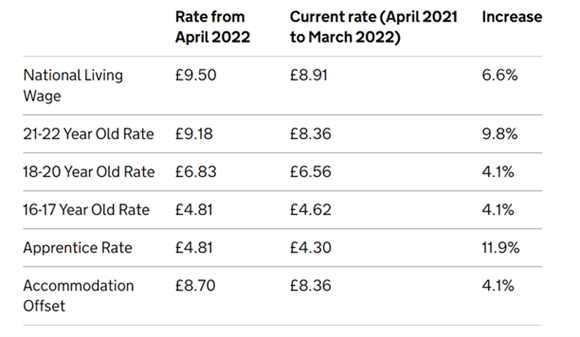Taking a few practical steps to support Muslim workers during Ramadan will help to create a workplace where everyone is respected and valued, writes TUC’s Riz Hussain.

For the next four weeks, thousands of Muslims across the UK will be fasting during the daytime to mark Ramadan or Ramazan.
Ramadan falls at a different time each year because Islam uses the lunar calendar.
This year, Ramadan will start at the beginning of April and continue for 29 or 30 days from when you begin your fast.
What happens during Ramadan?
It is a time for deep spiritual reflection and collective rituals for Muslims across the UK. It’s a time for Muslims to share food with their families and friends, and celebrate their cultures, heritage and faith.

The fasting day is long. The morning meal will be before dawn and people won’t break their fast until dusk. That’s 13 hours without food or drink (yes that’s right, not even water!). This can be challenging for many Muslims especially whilst at work.
That’s why it’s important to support your Muslim workmates, to stand in solidarity with them and create a team culture where everyone is respected and valued, no matter where they’re from or who they worship.
Practical steps colleagues and employers can take to support their Muslim workmates and friends:
Ask colleagues if they’re observing Ramadan
Don’t be shy about asking Muslim colleagues if they will be observing Ramadan.
Some people may choose not to take part – perhaps for medical reasons – as fasting is a personal choice.
Be considerate
Ramadan should not interfere with everyday tasks at work, but fasting co-workers may be tired or lacking energy during the day.
Usually the first ten days are the hardest. If you have colleagues who will be fasting, ask them if changing some aspects of work can make it easier for them.
Be flexible
Ramadan isn’t only about not eating or drinking during daylight hours.
It usually means rising early and eating late, and may mean taking part in late night prayers at the mosque or their homes. Ramadan is usually a time for deep spiritual reflection, congregational prayers and lots of social dinners with family and friends.
Some workers may ask to change their working day or shift times, to take a shorter lunch break, or to make sure they finish on time so they can break their fast at home.
Being flexible may help people work when they are most productive.
Some workers might have additional religious commitments during Ramadan. It may be especially important to perform prayers on time through the week. Employers can help by ensuring there’s a quiet space in the workplace for prayers and by allowing short breaks.
The last ten days of Ramadan are considered to be especially holy. Some Muslim workers might decide to take time off, or ask to change their working patterns to perform all-night prayers.
The end of the fasting period
Eid ul Fitr marks the end of the fasting period. It’s like Christmas for Muslims – the biggest celebration of the year.
There is often some uncertainty about which day Eid will fall because it depends on moon sightings, so be prepared for your Muslim colleagues not to know the exact date.
This may also impact on when they can work and how much notice they can give you, as Eid can last up to three days.
Supporting colleagues during Ramadan is part of building a culture where everyone is respected and valued.

This Ramadan, the TUC would like to wish all Muslim trade union members and everyone who is fasting in the UK: Ramadan Mubarak.

























